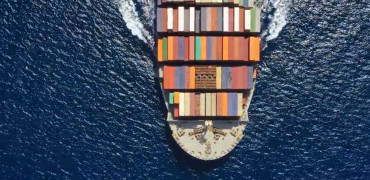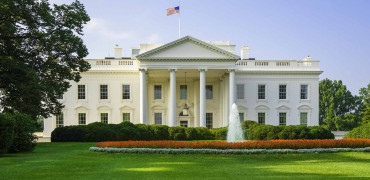With ‘Liberation Day’ long gone, but only one trade deal done so far, Jim McClelland asks: Has the threat of tariffs taken a toll on the depth of support for sustainability in business?
It is hard to believe that two whole months have passed since so-called ‘Liberation Day’ — when US President Trump unleashed a torrent of tariffs onto world trade.
Rates accelerated from 0 up to an eye-watering 145% at one point, before throttling back; sector-specific ones came and went, and came again; change has been the only constant.
So much has happened since April 2; but also, so little.
Money matters. So, if the business case stacks up for sustainability, all is not lost
The story so far…
The UK became the first (and to date remains the only) country to agree an Economic Prosperity Deal (EPD) with the US. It should have been one of the easier matches to make — as the balance of trade between the two nations actually favours the States.
Even this deal has only been reached in principle, however, with the fine print concerning sectoral commodities such as steel and aluminium, beef and ethanol, still to be agreed.
Besides China — maker and shaker number one — the US is talking to as many as 15 other nations at present but acknowledges it may need up to 150 signoffs, in total.
So, with a self-imposed July deadline looming large, Trump is upping the ante in a bid to speed unilateral agreements, sending letters to trade partners slow to come to the table.
As the weeks slip by, direct and indirect impacts of a drawbridge-up approach are starting to be seen. Fears of back-door routes into the US for imports via the likes of Vietnam and Mexico are on the rise, plus the EU is braced for China dumping excess production volumes into Europe at discount prices, as stockpiles of US-bound exports mount up.
As a result, the map is getting more and more messy for supply chain managers — tasked with diversifying in the name of agility, whilst trying to avoid rising costs and price inflation.
Deniers emboldened; diluters excused
As if all of this was not enough, for many key players, domestic politics and policy are in turmoil, too. Coalition governments in both Germany and the Netherlands have collapsed.
Political extremism is polling well at present: Right wing parties are now in power in Poland and Romania; plus, on the rise in Austria and France, also locally at least in the UK.
Hardliners have been emboldened by the influence of the alt-right in the US, coupled with the isolationist policy and reactionary rhetoric of the current incumbent in the White House.
To say the political mood music for sustainability is bad, would be an understatement. The writing is not just on the wall; it is on the statute: DEI is out; climate denial is in.
Like Donald Trump in the US, the Reform Party’s Nigel Farage in the UK is loud and proud anti-green — a net-zero naysayer loath to let the science get in the way of a good slogan.
Freed of eco guilt, certain corporates and brands in search of an excuse are now taking the opportunity to water down their carbon targets and walk back their climate goals.
So, what can save the sustainability agenda in these dark days?
Well, to recycle a famous catchphrase from the Clinton era: “It’s the economy stupid!”
Lessons in home economics
Trade talks and campaign trails have one thing in common: money.
Money matters. So, if the business case stacks up for sustainability, all is not lost.
That said, the fight is real — not just in terms of trade wars, but also trade-offs. The UK Spending Review 2025 illustrates perfectly the zero-sum game that is economic and fiscal policy — inter-departmental horse-trading is ultimately what balances the budget.
Therefore, the US-led geopolitical push to make NATO countries spend more money on defence effectively means there is less cash available for everything else.
Unfortunately, the environment still looks like a luxury to some, rather than a necessity — one which ends up downgraded to the level of discretionary spend, vulnerable to cuts.
Often, the cake just gets sliced thinner. So, the £2.5bn investment newly allocated to nuclear fusion under the banner of the clean transition will actually come out of the £8.3bn budget previously announced for Great British Energy, launched itself as recently as May.
Still, there was some good news: The Warm Homes Plan was spared the axe under the Spending Review, plus the government found an extra £9.4bn for carbon capture, utilisation and storage (CCUS). Decarbonisation of transport fared less well, perhaps.
Overall, though, lower growth is bad for every business case. So, the drop in monthly GDP for April caused by a tariff-induced slump in exports, is precisely not what the UK needed.
When the going gets tough…
The reality, therefore, is that the volatility around tariffs is inevitably taking its toll on business confidence in general, and the appetite for sustainability investment in particular.
The job of a sustainability champion is not an easy one in the current climate; but, when was it ever? Fortunately, those fighting for people and the planet, as well as profit, are tough. They may have had it rough for a while now, but found a way to keep the faith.
So, like all good clichés, the call to arms still rings true: Now is the time to walk the talk; to practise what you preach; to stand up and be counted; and to show your true colours.
Most of all, though, it is simply time to show up; show up for sustainability, again, today.
Jim McClelland is a sustainable futurist, editor, journalist and speaker




